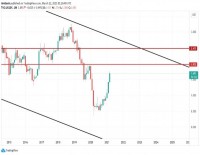|
Opalesque Industry Updates — U.S. institutions used the first half of 2009 to take a close look at their investment policies, asset allocations and investment managers to determine what went wrong last year, to pinpoint the policies, investments and managers that performed as expected through the market crisis and to identify those that fell short. The conclusions that institutions draw from these reviews will have a profound impact not just on the U.S. investment management industry, but also on the world’s financial markets and on the millions of American workers who rely on the nation’s pension system for their security in retirement. To provide our Research Partners and clients with an early look at how institutions are responding to the historic crisis, Greenwich Associates conducted a Greenwich Market Pulse survey of 152 U.S. institutions about the actions they have taken with regard to investment policy and other aspects of fund operations over the past 12 months and their plans for the coming year. Respondents included 97 corporate pension funds, 34 public funds, and 21 endowments and foundations with AUM greater than $1 billion. The survey results provided the following insights: • Institutions are sticking with diversification strategies: they continued to reduce allocations to U.S. equities through the second half of 2008 and into the first six months of 2009, and they remain committed to significant allocations of hedge funds, private equity and other alternative investments. • At the same time, corporate plan sponsors that were stung last year by dramatic reductions in portfolio asset values are moving to reduce the volatility of pension fund investment performance by increasing allocations to fixed income, even as they shut defined benefit plans to new employees and reduce matching contributions to defined contribution plans. • The financial crisis has had an equally profound effect on public pension funds. Because public funds are not subject to the same accounting rules that govern corporate pensions, they are accepting greater levels of short-term volatility and lower levels of liquidity in return for the chance to make up for last year’s setbacks with strong investment returns. As such, fewer public funds are shifting assets into fixed income and more are increasing allocations to alternative asset classes with higher potential for returns. • After finding themselves forced to sell assets into a falling market in order to fund operations, grant obligations and other needs during the crisis, endowments and foundations are revising their views on cash holdings and increasing liquidity requirements within their portfolios. However, endowments and foundations are giving no signals that they are reconsidering investment policies that emphasize diversification and incorporate relatively high allocations to hedge funds, private equity and other alternative asset classes. In fact, 44% of endowments and foundations have actually increased their allocations to hedge funds over the past 12 months. • Public pension funds and endowments have been the first movers among U.S. institutions in making opportunistic investments related to the market crisis. Almost a quarter of U.S. institutions overall have already made investments in opportunistic funds, including vehicles looking to exploit what could be once-in-a-generation opportunities in fixed income, secondary private equity and other asset classes. Endowments and foundations have led the way, with 45% of these institutions investing in opportunistic funds, followed by public pension funds at roughly one-third. • More than 20% of U.S. institutions have shifted assets from active managers to passive strategies in the past year, but it is not yet clear whether this move represents a temporary “parking” of assets as institutions abandon underperforming active strategies and managers, or a more secular change in approach. • Almost half of U.S. institutions have scaled back their securities lending programs after discovering unexpected levels of risk during the market dislocations of last year. • Manager turnover could reach historic highs over the course of the next 12 months if institutions follow through on their plans for managing hiring and firing. At the very least, managers can expect tough new demands for increased transparency and disclosure. For more information contact: Joan Weber, +1 (203) 625 4354, jweber@greenwich.com Greenwich Associates is the leading international research-based consulting firm in institutional financial services. Greenwich Associates’ studies provide benefits to the buyers and sellers of financial services in the form of benchmark information on best practices and market intelligence on overall trends. Based in Stamford, Connecticut, with additional offices in London, Toronto, Tokyo, and Singapore, the firm offers over 100 research-based consulting programs to more than 250 global financial-services companies. Please contact us for further information or to arrange an interview with one of our consultants. You can visit our website, www.greenwich.com, for more information.
|
Industry Updates
Greenwich Associates Survey: how U.S. institutions respond to the global downturn
Monday, June 15, 2009
|
|





 RSS
RSS







